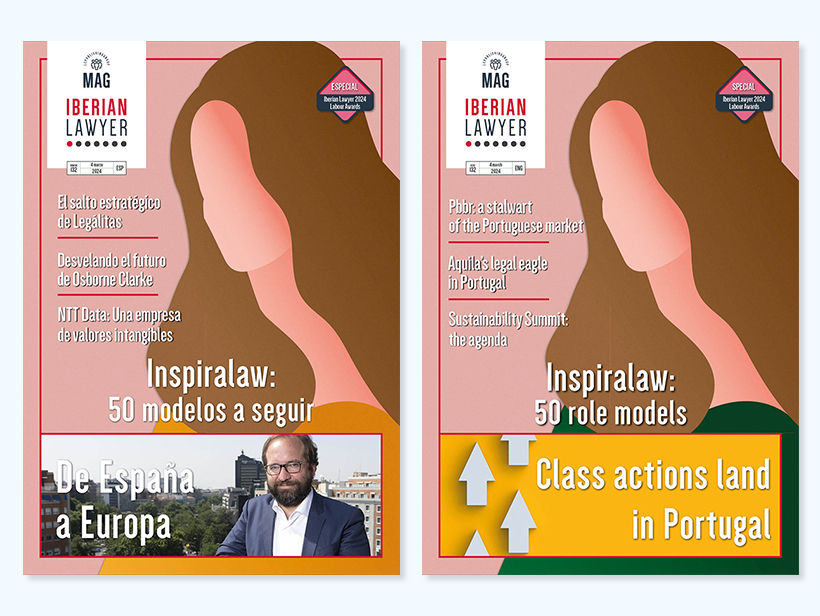Rise in cartel damages cases could lead to new type of law firm
Clients more willing to file ‘follow-on’ claims following implementation of EU directive, while also seeking lawyers’ advice on uncertainty surrounding future of CNMC
Market insiders anticipate that the emerging trend for cartel damages litigation in Spain could lead to the emergence of a new type of law firm that focuses solely on such claims. Of all the areas of competition law activity, it is the sudden proliferation of ‘follow-on’ cartel damages litigation that is creating the most significant opportunities for lawyers. In follow-on claims, injured parties rely on prior infringement decisions by competition authorities when seeking damages.
The increase in follow-on litigation is, in large part, due to the recent implementation of a European Union directive (Directive 2014/104/EU) related to rules governing actions for damages associated with infringements of competition law. As a result, aggrieved parties have shown an increased willingness to file claims.
While follow-on cartel litigation has been booming in other European jurisdictions – such as the Netherlands and the UK – it presents a relatively new opportunity for Spanish lawyers. However, the relative lack of experience of lawyers in Spain is not necessarily an obstacle in receiving mandates. Francisco Cantos, partner and head of the antitrust, competition and trade practice at Freshfields Bruckhaus Deringer says that, while “this is an area which is at a very early stage of development in Spain, there will be opportunities for everyone”. Pérez-Llorca partner Oriol Armengol says: “The increase in cartel damages litigation could lead to the emergence of law firms that will be dedicated to handling these type of cases.”
Meanwhile, the implementation of new measures that prevent companies involved in “bid-rigging” from being awarded public procurement contracts by the Spanish state will also generate a considerable amount of work for lawyers, according to Armengol. “Lawyers will have to advise clients on how to avoid such penalties,” he adds. “Helping clients to avoid debarment from public tenders will result in a significant increase in work for lawyers.”
Lawyers say that key to success in the area of competition law is considering how best to position your firm as a market leader, as well as having the right lawyers and expertise. “You need to have litigators with competition expertise, and competition lawyers with litigation expertise,” according to Jaime Folguera, partner and competition practice head at Uría Menéndez.
Spain’s National Authority for Markets and Competition (Comisión Nacional de los Mercados y la Competencia) has become more aggressive in its pursuit of those responsible for infringements – it closed 2016 with a total of 14 resolutions, and the imposition of fines totalling €227 million. Among the 14 infractions were nine resolutions punishing cartels. “Cartel enforcement is very intense in Spain,” says Cani Fernández, partner and director of the competition and EU law practice at Cuatrecasas. “It will remain bread and butter work for lawyers, and rightly so.”
However, advising clients on the potential fines that could be imposed for certain infringements – such as anti-competitive behaviour, collusion and cartels – has not been straightforward, lawyers say. In a landmark decision in January 2015, the Spanish Supreme Court found the CNMC’s method for calculating fines to be in breach of the Spanish Competition Act. “We still do not have confirmation of new methodologies considered to be compatible with the law,” says Fernández. Yet this lack of clarity has generated additional work for legal counsel. “Since the guidelines were declared null and void there has been quite a bit of legal uncertainty in the market as to which sanctions or which fines the agency will impose in a given case,” according to Cantos.
CNMC confusion
The Spanish government’s plan to split the Comisión Nacional de los Mercados y la Competencia (CNMC) into separate entities, with one focusing exclusively on antitrust and another on regulated industries, has created another area of uncertainty. Though no date for the split has been set yet, the expectation is that it could occur in 2018. This in itself could lead to increases in demand from clients for competition law-related advice. The changes made as a result of dividing up the regulator will “bring the need for clarification and will mean more work for lawyers,” says Miguel Odriozola, partner and head of the antitrust team at Clifford Chance.
According to Odriozola, the biggest opportunities for law firms are currently damages actions and compliance work. With so many developments in the field of competition, companies in Spain are recognising the pressing need for antitrust compliance. “Competition risk is now among those that companies are putting on their list of priorities,” says Fernández.
Meanwhile, the more buoyant M&A market in Spain is ensuring a steady flow of merger control work, and the expectation in the market is that this trend will continue. Consequently, competition lawyers have good reason to be confident about the future. As Folguera notes: “There has been clear growth in work, and the signs are that this growth will continue in the coming years.”














